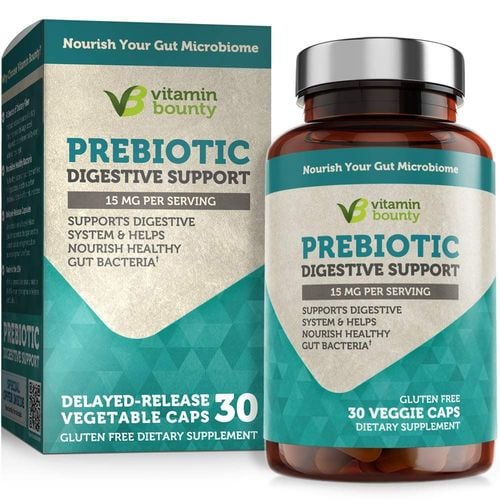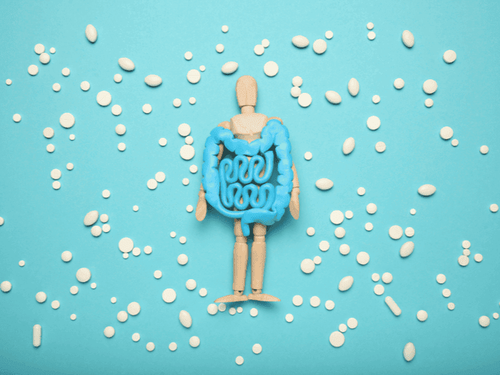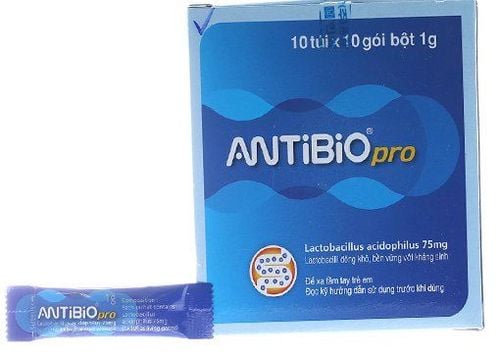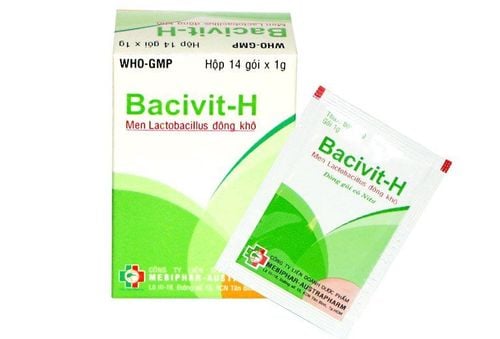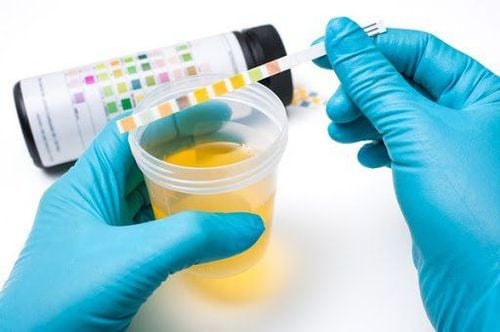This is an automatically translated article.
Posted by Master, Doctor Mai Vien Phuong - Department of Examination & Internal Medicine - Vinmec Central Park International General Hospital
Probiotics have appeared in commercially available infant formulas, supplements and foods. You may be wondering what probiotics are, if they are safe for babies, and if they have any benefits for your child.
Probiotics are recognized as good bacteria. These bacteria are thought to be good for your digestive (GI) system and help improve other health conditions.
There is still a lack of research on the benefits of probiotics for babies. Some studies link their use to improved digestion and upset stomach. Always talk to your child's doctor before giving your child probiotics.
1. Are they safe?
Most studies on infants and probiotics indicate safety when using them in healthy infants. Keep in mind that there is still a lack of substantial studies on probiotics and infants. No major health authorities have endorsed their use for this age group.
You should discuss the use of probiotics for your infant with your doctor before using them. This is for a few reasons:
There are some strains that work in different ways.
Food and Drug Administration (FDA) consider them a supplement. Therefore, they are not administered as drugs nor have they been shown to be safe.
There is no officially recommended dose for infants at this time.
Some have side effects such as allergies, stomach upset, diarrhea, gas and bloating.
Newborns need special care. You should talk to your doctor about any type of supplement before giving it to your child. Your doctor can discuss the need for probiotics and can recommend them or another course of treatment that is best for your child.
2. What are probiotics?
Probiotics have been in the spotlight over the past decade because of their suggested health benefits. The 2012 National Health Interview Study shared that 4 million adults and 300,000 children had taken probiotics in the one month before the study.
The term probiotics is an umbrella term. It represents many different strains of live microorganisms, usually bacteria, that are considered good for your body, as they can help maintain a good balance of bacteria in the digestive tract.
You can find probiotics in supplements as well as in foods like:
Yogurt Other dairy products Sauerkraut Pickles Some of the main strains of probiotics you may find are:
Lactobacillus Bifidobacteriu Saccharomyces boulardii You may already have these good bacteria in your body, but adding probiotics to your diet or taking them in supplement form can increase the numbers in your body.
Probiotics can help babies because they are born with a sterile digestive system which can be prone to breakdown. Over time, babies accumulate bacteria that will help them build a barrier in their digestive tract, gain a stronger immune system, and prevent infections.
Newborns can develop a condition that causes symptoms like constipation or pain at any time, even before they naturally accumulate bacteria. They may also have abdominal pain.
Probiotics can help add good bacteria to an infant's stomach more quickly. Babies get good bacteria from breast milk or formula, and then food. The bacteria in your baby's stomach can be changed by many factors, such as the method of birth, gestational age, and whether they took antibiotics early in life.
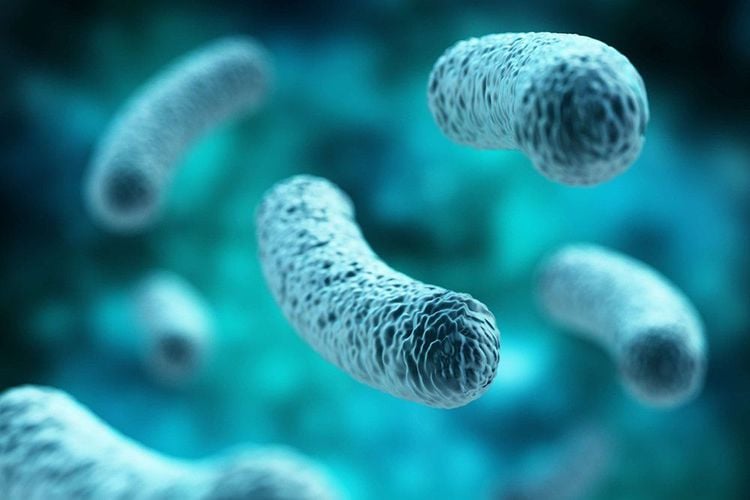
3. How Probiotics Can Be Beneficial
The reasons for using probiotics in infants may be different from the reasons for using them if you are a child or an adult.
For adults and children, clinical evidence shows that probiotics can help:
Boost good bacteria if you take medications like antibiotics Balance different types of bacteria in your body Reduce symptoms of irritable bowel syndrome Prevent diarrhea from infections or antibiotic use Minimal clinical evidence indicates that probiotics may work for some other conditions, although more research is needed . Probiotics can help:
Control eczema, asthma or food allergies Prevent urinary tract infections Improve oral health, such as reducing tooth decay and periodontal disease Infants with health conditions other specific health benefits that probiotics can help with. Newborns may have conditions that affect the digestive system such as acid reflux or colic. These conditions can be very difficult to manage and cause nightly insomnia for both the baby and the parents. Probiotics can relieve symptoms and help babies cry less.
Some recent studies on the benefits of probiotics for infants include:
A 2014 study found that treating healthy infants during the first trimester with a probiotic specific health and financial benefits. This helps avoid the onset of digestive conditions, like reflux and constipation, as well as reduce crying time in general.
A 2011 study connected a reduction in colic symptoms with the use of probiotics. The study examined the outcomes of breastfed infants given 5 drops of a probiotic supplement 30 minutes before feeding for 21 days. Research shows that babies who take supplements cry less than babies who don't take supplements.
The benefits of probiotics will probably only last through active use of them.
Potential Risks
Probiotics are not regulated by the FDA and their use can carry risks. You should be cautious when giving probiotics to babies and talk to your doctor first.
Probiotics in general have very few side effects in healthy adults and children, but more research is needed to understand their benefits and risks. People with weakened immune systems, health problems or who were born prematurely may have an adverse reaction to probiotics. For example, they may have an infection.
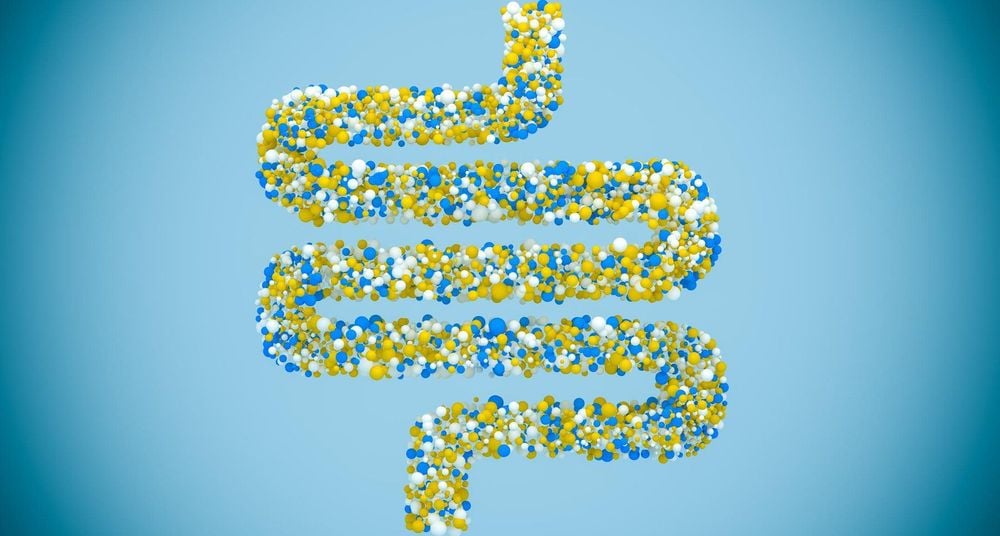
4. Product types
There are no current standards governing the use of probiotics, especially for infants. Remember that not all probiotics are created equal. Rely on your doctor's advice before proceeding. There may be one type that suits your child's needs better than others.
Probiotics for babies are available as supplement drops as well as in infant formula. Older children can eat foods that contain probiotics, like yogurt.
Probiotics may become less viable over time if dispensed in bottles. A 2018 study looked at how long a probiotic supplement with Infilran would stay stable in breast milk, pasteurized water, and formula. The study concluded that probiotics should be used within six hours if dispensed in breast milk or sterile water kept at 39.2°F (4°C). Probiotics last longer in formula kept at this temperature.
Bottom Line
You may be interested in taking probiotics with your newborn to help with certain digestive and colic ailments. Some studies have concluded that there are benefits to using probiotics with infants, but more research is still needed.
There are probiotics available in many formulas and supplements. None of these products are regulated by the FDA. Consult your doctor before using any probiotics to keep your infant safe and healthy.
Department of Endoscopy - Gastroenterology is one of the key specialties at Vinmec International General Hospital. For timely examination, advice and treatment of digestive diseases, you can contact Vinmec Health System nationwide or book an appointment on the website for service.
Please dial HOTLINE for more information or register for an appointment HERE. Download MyVinmec app to make appointments faster and to manage your bookings easily.
ReferencesAnabrees, J, et al. (two thousand and thirteen). Probiotics for infantile colic: A systematic review. bmcpediatr.biomedcentral.com/articles/10.1186/1471-2431-13-186 Balzer, D. (2018). Mayo Clinic minute: Should you give your kids probiotics? newsnetwork.mayoclinic.org/discussion/mayo-clinic-minute-should-you-give-your-kids-probiotics/ Bertelsen, RJ, et al. (2016). Use of probiotics and prebiotics in infant feeding. sciencedirect.com/science/article/abs/pii/S1521691816000020 Center for Community Child Health. (n.d.). Probiotics for Children and Children [Fact sheet]. rch.org.au/uploadedfiles/main/content/ccch/cpr_vol22_no1_factsheet.pdf Probiotics in infant formula. (2018). healthychildren.org/English/ages-stages/baby/formula-feeding/Pages/Probiotics-in-Infant-Formula.aspx Indrio, F, et al. (2014). Prophylactic use of a probiotic in the prevention of colic, regurgitation, and functional constipation. jamanetwork.com/journals/jamapediatrics/fullarticle/1812293 Koonce, T, et al. (2011). Colicky baby? Here's a surprising remedy. ncbi.nlm.nih.gov/pmc/articles/PMC3183958/ Mayo Clinic Staff. (2018). Colic.





